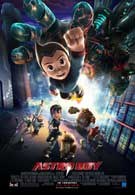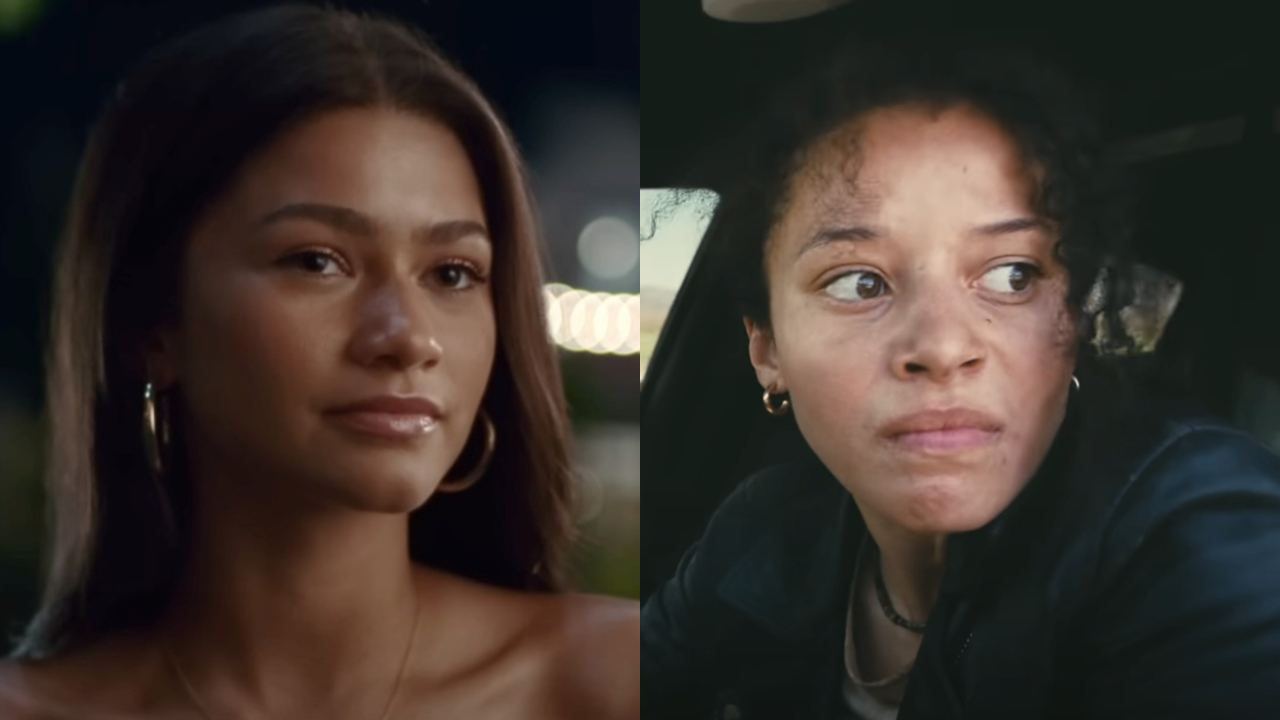Astro Boy begins with animation that’s clearly an homage to the old Disney shorts we used to watch as kids. The informational kind. The ones that told us how cars worked and about the amazing future we had ahead of us. While it’s a clever tool that, through exposition, helps to inform us enough to enter the story that’s about to be told, it’s done at only a fraction of the quality of those Disney shorts. And that turns out to be the case for all of Astro Boy. The movie is a retread of many great children’s stories, jokes, and plot devices, but it’s not a quality retread. Instead, it’s executed lazily and in many cases, unusually. It’s like a robot that just doesn’t work that well, even though it’s made up of pieces from all of the most expensive, fancy robots on the market.
We learn quickly that Astro Boy takes place on a floating piece of land called Metro City, hovering just above the Earth’s surface. As in Wall-E, humans have trashed Earth until it’s uninhabitable, forcing them to find a way out. We’re introduced to Toby (voiced competently by Freddie Highmore), the picture perfect middle schooler, wise beyond his years. His dad, Doctor Tenma (voiced less than competently by Nicolas Cage) is a genius scientist who, like every dad in every movie, constantly chooses his work over his kid. Instead of picking Toby up from school, the family robot picks Toby up and a hologram of his dad is projected into the car.
When Toby finds out that his dad will be unveiling a potentially world-changing project, he redirects his family robot to his dad’s lab to check out the testing. The President of Metro City has other plans for the project though, and when he attempts to take things into his own hands, havoc occurs. In lieu of giving away too many plot details, let’s just say this leads to the creation Astro Boy. Other things happen: Astro Boy is scared out of Metro City; he meets a rag tag group of young misfits that fit the ‘lost boys’ mold perfectly (except for that there’s a couple of girls); he grows close to their seemingly nice father figure. In the end, this is mostly just a means of beefing up an otherwise paper-thin conflict that has President Stone chasing after Astro Boy in hopes of taking back the powerful blue energy he’s built with.
Each character in the movie is an archetype. Cora is the rebellious orphan who just wants her parents back (we never really learn how she got lost in the first place, or why her parents never looked for her). Orrin is the sweet adult figure in the kids’ lives that may not be as genuine as he seems. Even Astro Boy, ironically, fits in perfectly with the outsider character type. In this world where Astro Boy feels out of place, the group of kids is meant to function as a new home for him. Yet, that connection is never fully developed.
They’ve made some odd choices with this script, and there’s a message lurking not far beneath the movie’s surface. At the center of the movie’s conflict are two sources of energy: one blue and one red. The blue one stands for all things good and if used correctly, could bring life, vegetation, and water back to earth. The red could destroy it all. Remind you of American politics at all? Yeah, me too. Additionally, the main antagonist in the film is the President of Metro City, a powerful but sinister man who wants to strike fear in the heart of his constituents in order to bring up his poll numbers. His campaign motto is “It’s NOT time for change.” Politics aside, this kind of generalization seems unnecessary and frankly, made me cringe.
I’m not one for conspiracy theories, but Astro Boy contains borderline liberal propaganda, and that’s coming from a dude who generally votes with the blues. This has no place in a movie made primarily for impressionable elementary school kids. In Wall-E we got intelligent commentary on the state of American consumerism and where it may lead us, in addition to a heartfelt story about a robot in love. This movie offers more of a Keith Olbermann perspective, highly biased and filled with oversimplification, without a story to back any of it up.
Despite all of this, Astro Boy isn’t completely awful. The movie offers the kind of dark insights in dealing with Doctor Tenma’s loss that are rare in a kids’ movie. He turns almost maniacal and cold in his guilt, denial, and regret. It also doesn’t hurt that the movie was directed by David Bowers, the guy behind Flushed Away, which means the animation is pretty snazzy, if far from the standards we’ve grown used to from Pixar and Dreamworks. Even so, nothing can save the this from becoming just another cliché kids’ movie. It has too many different parts, parts that have been used over and over again by so many other, better movies. No matter how much lubrication you use, those parts just don’t fit together.
Your Daily Blend of Entertainment News

